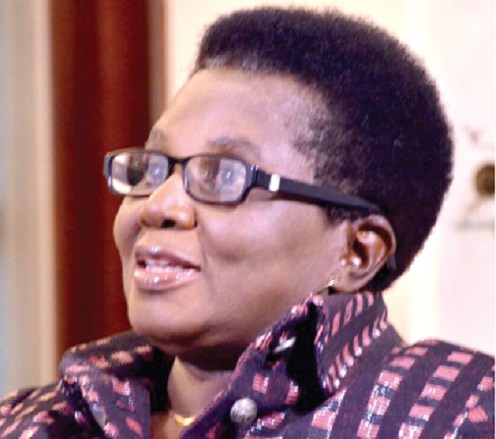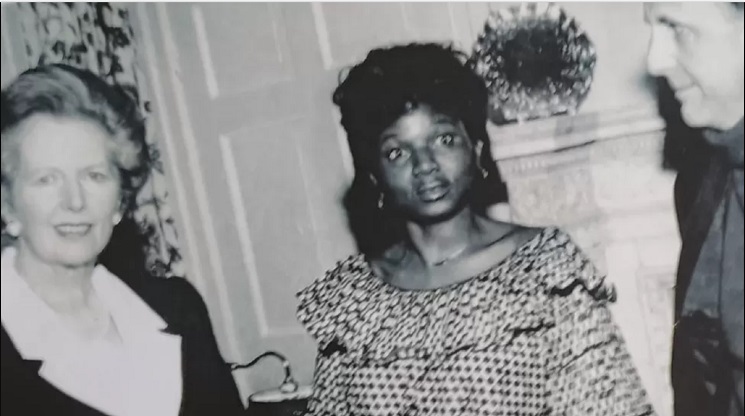
My first duty trip for focus
Having started it, I must continue my BBC Focus on Africa story. One of the most interesting phenomena I met at the BBC was the “Duty Trip”. Up until I got to the BBC, I knew, as a journalist, about being sent on a reporting trip, be it inside or outside the country, when a sudden news event had broken out or to a planned event like a conference or election.
Advertisement
The Daily Graphic had sent me to Kumasi to cover the coronation of Otumfuo Opoku Ware and I had been to Ethiopia to cover Organisation of African Unity (OAU) conferences and other international meetings.
The sports journalists were always going to cover sporting events around the world. I would have called those journeys duty trips.
Then I got to the BBC and discovered a “Duty Trip” at the BBC was not necessarily to cover a specific event.
Instead, you were sent to a country to get to know the people, build contacts, and get a feel of the place, so that when stories do break out, we shall have a proper background and be better placed to understand and cover the stories.
South Africa
Robin White, the Editor of Focus, was determined I would go to South Africa, but this was 1987 and I was carrying a Ghana passport that had stamped boldly in it, “NOT GOOD FOR TRAVEL TO THE REPUBLIC OF SOUTH AFRICA AND THE BANTUSTANS”.
I did go eventually to South Africa in 1990, but we are not quite there yet. Today, I am on my first Duty Trip at the BBC, which was to Zambia, Zimbabwe and Botswana.
The first stop was at Zambia, where I was met at the Lusaka airport by the legendary sports reporter, the late Denis Liwewe. (I am suggesting there has never been and never will be another sports reporter that ever covered, and I dare say, would ever cover a football match with more passion and drama than Denis Liwewe.)
By the time we reached my hotel, I knew Zambia was in the midst of economic difficulties. It was nothing Denis said, but I could tell from the sound of the orchestra of empty bottles in his car boot that this was a country where you kept empty beer and soft drink bottles in the boot of your car, just in case you came upon some place where beer and soft drinks were being sold.
I was, after all, a true Ghanaian woman who was much practised in surviving in an economy of shortages.
Lusaka was, at the time, the headquarters of the exiled African National Congress (ANC). The South African Airforce had been on a regular bombing raid a fortnight before I got into town and the debris was all still around.
I spent time in the ANC office and met many of the people who would later become important officials in South Africa after the release of Nelson Mandela and the unbanning of the ANC.
I went to State House, met and conducted a famous interview with President Kenneth Kaunda and he became my friend after the encounter. I must confess there was a disaster: I got to my hotel after the interview and discovered my tape recorder had malfunctioned and I did not have a word on tape of the interview with the President!
I was saved by the Zambia Broadcasting Corporation, which had recorded me interviewing the President. I had protested the state broadcaster should not be allowed to record my exclusive interview and had been overruled, and as it turned out, that was my saving grace, for there would have been no famous interview with President Kaunda to be played on the BBC Focus on Africa.
Later
Many years later, I had a similar experience when I interviewed President Sam Nujoma of Namibia at State House in Windhoek and got back to the hotel and discovered a strange noise on the tape.
I went back to State House and shamefacedly told the President about the difficulty. He agreed to grant me another interview, which we did four days later when I got back to Windhoek from Swakopmund.
But I am getting ahead of myself. I am still in Zambia and up in the northern town of Kitwe and in the office of a certain Trade Unionist, seated behind a big empty table.
He was called Frederick Chiluba. He was so grateful he was being interviewed for the BBC; it was a touch embarrassing. Some say that interview gave him a big break; well, I never got an interview with him once he became President Chiluba.
I went to a commercial farm, I went to a school and I then decided to spend some time in the Parliament and see how the one-party state was functioning. This was 1988, and even though agitations had started for a return to a multi-party system, Kaunda’s party, UNIP, was, at the time, still the only party.
I reached Parliament House and I am led upstairs to the lobby, and after sitting down for a while, I stand to join some journalists so I could get a better view as the debate and the House got heated.
I don’t now remember how long I stood there, but the next thing I knew was that I was being lifted bodily from behind by two men who held my shoulders and carried me out backwards until we got out of the door and I was put down.

I then looked at the two men responsible for this outrage and they were shouting: “bare back, bare back!”.
It took a while for me to work myself through the shock, bewilderment, confusion, anger and a determination not to find anything funny in my predicament.
I had been forcibly and unceremoniously carried out of the Parliament House in Lusaka because the Marshalls had determined that I was inappropriately dressed!
I certainly hadn’t gone there with my back bare as the men had claimed. As far as I know, I have never owned any outfit that can be vaguely described as showing a bare back.
I was mortified and, by this time, some known faces had appeared around me and were trying desperately to apologise for the manhandling I had been subjected to.
Etiquette
I was given a quick lesson in Zambian clothing etiquette; it was my uncovered shoulders that were the problem. I could have gone into that August House wearing a pair of shorts and it would have been perfectly tolerable, for as long as I had something draped over my shoulders.
I did a story for Focus on Africa about being lifted and taken out of the Parliament House and accused of being inappropriately dressed with a bare back. I was afraid I would never be able to live down that incident, but I had, in fact, even forgotten about it myself until I sat down to recollect the story of that first duty trip.
This article was meant to recount the trip to Zambia, Zimbabwe and Botswana and all I have done is talk about Zambia.
At this rate, I would never finish the story of my 14 years at Focus on Africa.
I must tell the Botswana story and I will. How can I tell my Focus story without South Africa, and Somalia, and Ethiopia, and Liberia and Sierra Leone and Nigeria? And what about the people
I worked with?
Can I purport to tell the Focus story without the stringers around the continent? They were the stars of Focus on Africa. There shall be more.




